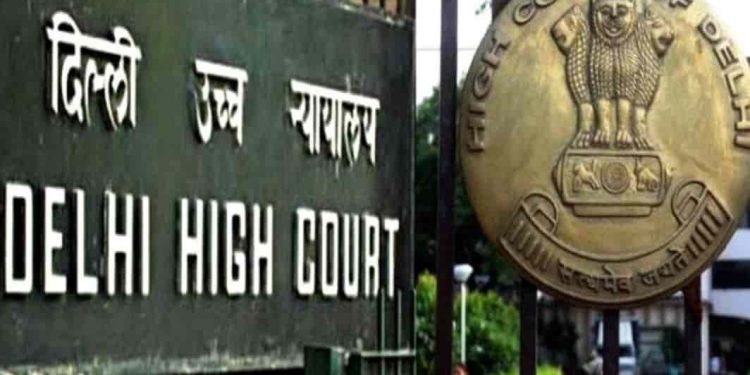New Delhi: The Delhi High Court Monday sought to know the stand of the city police as to whether a plea by JNU student Sharjeel Imam seeking bail in connection with a 2020 riots case involving allegations of sedition be remanded back to the trial court for adjudication.
The high court said there was no ground mentioned in the trial court’s order rejecting Imam’s bail plea.
A bench of Justices Siddharth Mridul and Talwant Singh granted two-week time to the Delhi Police counsel to take instructions whether the trial court’s order rejecting the bail plea be remanded back. It listed the matter for further hearing February 20.
The high court was hearing Imam’s plea challenging the trial court’s January 24, 2022 order, dismissing his bail application in the case.
Meanwhile, his counsel withdrew Imam’s interim bail plea as the court was taking up his appeal challenging the trial court’s order denying him regular bail in the case.
The bench said since section 124A (sedition) of the Indian Penal Code has been kept in abeyance following the directions of the Supreme Court, it will have to examine the trial court’s bail rejection order while keeping in mind the other sections framed against Imam.
Last year, the trial court had ordered the framing of charges against Imam under Sections 124A (sedition), 153A (promoting enmity), l53B (Imputations prejudicial to national integration), 505 (Statements conducing to public mischief) of IPC and Section 13 (Punishment for Unlawful Activities) of Unlawful Activities Prevention Act.
“The other thing you (prosecution) will have to answer is what is the ground on which bail has been rejected?” the bench said.
As Special Public Prosecutor Amit Prasad said the ground is that charges have been framed against the accused.
“So what? That is not a ground. Where is the ground? You have to decide we are hearing appeal or fresh bail plea. There is no ground on the bail in the whole bail order. You seek instructions,” the bench said.
During the hearing, the bench said that Section 2(1)(o) of the UAPA which defines ‘unlawful activity’ is completely different from Section 124A IPC which defines sedition.
The high court perused the definitions and said that unlawful activity would be an activity which is committed against India, whereas sedition is committed against the “Government established by law in India”.
“This is the principle difference. Sedition is against the government established by law in India and it has nothing to do with unlawful activity,” the bench said.
While advancing arguments on the bail plea, Imam’s counsel said charges have already been framed against the accused and it was a case for grant of regular bail.
He said it is an admitted position that there was no overt act on behalf of Imam and the speech delivered by him rather than calling for violence, calls for non-violence as he says they will not burn down property.
He stressed the point that Imam has been in custody for three years now.
Imam had earlier sought interim release until the top court decides the constitutional validity of offence of sedition. The court was also informed that Imam’s plea challenging the framing of charges in the matter is also pending before it.
As per the prosecution, Imam had allegedly made speeches at Jamia Millia Islamia December 13, 2019 and at the Aligarh Muslim University December 16, 2019 where he threatened to cut off Assam and the rest of the Northeast from India.
In his petition before the high court, Imam has said the trial court “failed to recognise” that pursuant to the directions of the top court, the basis for dismissal of his earlier bail plea, the charge of sedition, no longer existed and therefore relief must be granted to him.
May 11, 2022, the Supreme Court had stayed till further orders the registration of FIRs, probes, and coercive measures for the offence of sedition across the country by the Centre and the states until an appropriate forum of the government re-examines the colonial-era penal law.
PTI






































